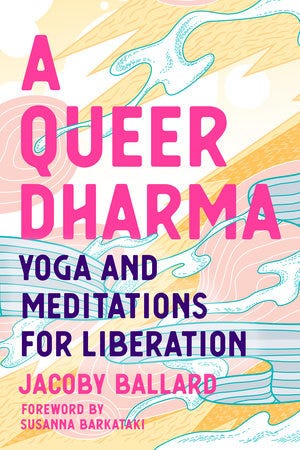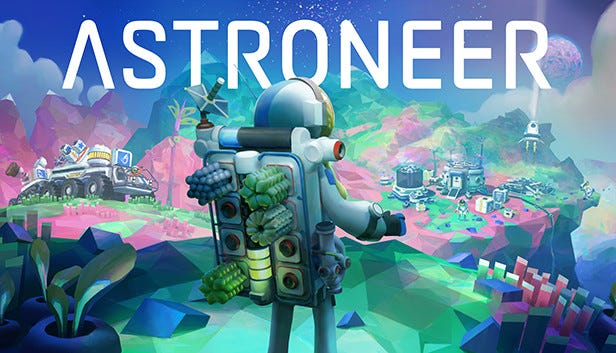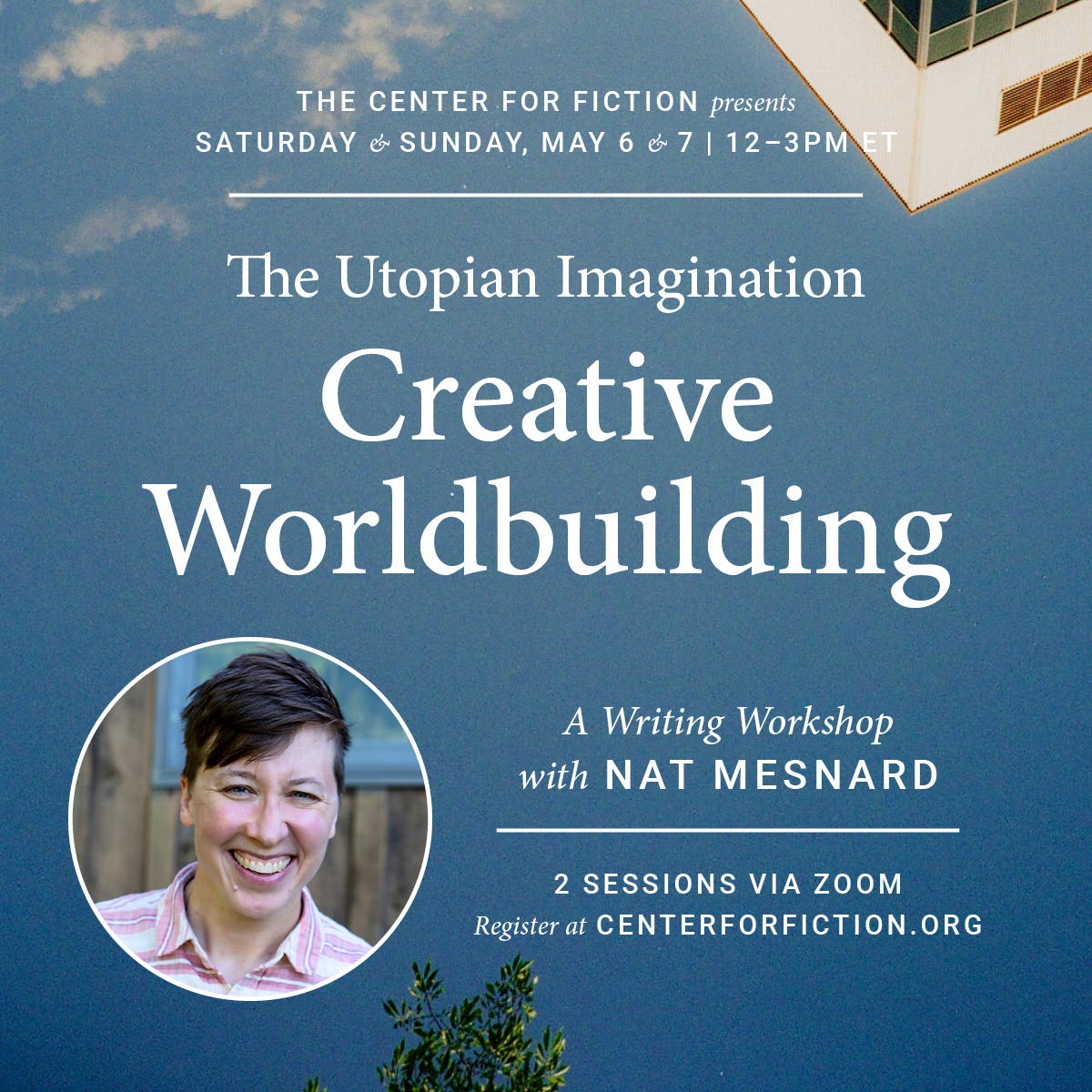An Astroneer Dharma
Is it possible to be in the present moment when all you can think about is video games?
In this inaugural Story Games newsletter, I explore “mediated experiences” by reading nonfiction on yoga and playing an outer space-themed game. Even though I’ve I’ve practiced yoga for close to 20 years I still struggle with some of those teachings. Read on to learn how I saw them differently this week by reading A Queer Dharma and playing the PC game Astroneer.
A Queer Dharma
I just finished reading A Queer Dharma: Yoga and Meditations for Liberation by Jacoby Ballard, a nonfiction guide to “embodied healing through yoga and the dharma, grounded in the brilliance, resilience, and lived experiences of queer folks.” Ballard is a queer, trans yoga and meditation instructor who helped found Third Root Community Health Center in Brooklyn, which I went to just one time before the pandemic. It’s now closed, but Jacoby still teaches Queer & Trans Yoga online.
I started attending Jacoby’s yoga class not that long ago, but I was quick to jump on reading this book. I freaking love reading books by people I’m also otherwise connected with, particularly if that person is a teacher of mine.
It’s been kind of a thing for me lately to find teachers. I think this is because I’m starting to feel a little weary of how much I teach as part of my career, and I need to be held and facilitated-for myself.
I felt held, and facilitated-for, by A Queer Dharma. One of my favorite parts of the book is when Ballard speaks about how yoga and social justice pull him in opposite directions. He also talks about existing between genders and sexual orientations. The entire premise of the book is that living out a nonbinary reality is valuable. It lets Ballard look at each world from the perspective of the other, critiquing yoga from a social justice standpoint, and vice versa.
On reading A Queer Dharma, I was surprised to feel more receptive than I’ve ever been to some of the classic yoga and Buddhist teachings. In the past, I’ve been irritated by yoga teachers reproaching me with “yoga is more than asana” and “all yoga is just breathing,” even though I know all that is right. I think part of what I heard in those statements was that I needed to calm it down, okay, because masculinity isn’t welcome in yoga studios, especially masculinity like mine.
But somehow, shockingly, I can receive these lessons when they’re being spoken by a transmasculine yoga teacher! Instead of sounding laden with heteronormative implications, Ballard’s suggestion that yoga practitioners pay attention to breathing just seems, I don’t know, kind of important and true.
Astroneer
Meanwhile, I’ve been playing the game Astroneer in the evenings with my partner, Pat.
Astroneer is “a game of aerospace industry and interplanetary exploration” that’s a mashup of the gameplay from Satisfactory, Stardew Valley, and Outer Wilds, done in an art style reminiscent of Roblox and Slime Rancher. It’s nonviolent except for some defensive alien plants, and the focus is on crafting, and exploring planets in a miniature solar system.
It has been fascinating to play a crafting and exploration game where monsters never attack you. After visiting multiple planets in Astroneer, I’ve realized that I’m narratively programmed to expect the sudden anxiety that comes from being in a fight. In this game, though, you never peak out like that. It’s a slow, gentle grind as you mold each planet using this multi-vacuum tool that can suck in soil and resources, then blow dirt back out to create new pathways.
The most threatening thing in Astroneer is managing your oxygen supply. Your space suit only gives you a short timer on breathing before you suffocate, unless you’re connected to a line of oxygen tethers stretching back to a base. Routing these lines is a big part of what you do in Astroneer, and it’s easy to disrupt them by sucking dirt out from beneath one tether point and knocking it over.
I have died repeatedly by suffocation. I get distracted by some compelling task, like creating train tracks down inside the core of an ice planet, and suddenly the edges of the screen go red. Run back to the tethers, little one! But sometimes I don’t make it, and my little guy on the screen spins. Then everything briefly goes dark.
Mediation, Meditation
The other day I was chatting on Discord with my friend Nino about “mediated experiences.” It wasn’t a serious conversation, but in talking about friends and books and normal weekly ambitions, we found ourselves touching on ways technology shapes what and how we see. This has been a theme throughout our friendship, and we’ve brought it up on Queers at the End of the World, the podcast we hosted together for the last two years, more than once.
In this conversation, Nino mentioned reading a theorist who was critical of tourists shouting out “wow” and “beautiful” at places like the Grand Canyon because doing so mediates experience. I guess the idea is that such pronouncements toss language and cognition in between the person who’s seeing, and the thing that’s being seen. I can appreciate that idea because it characterizes communication as a type of technology. I often notice how social media does this when I see or experience something and think, That would make a great tweet.
My counterpoint in this minor back-and-forth with Nino was a poem by Maggie Smith. It’s called Poem Beginning With A Retweet:
I guess the pushback from Smith here is that everything, in a way, is mediated. Denying that is like denying your humanity even though it’s definitely horrific to admit that what is now Elon Musk’s Twitter is (and has been) a major part of your ongoing creative life.
It’s awful to think about this, but it’s also honest, and that often reduces disorientation. In A Queer Dharma, Jacoby Ballard reaches for a similar honesty in stating that while yoga is undeniably healing and transformative, it has also historically been a caste oppressive practice in India, and excludes many people from its teachings in the US today. This nonbinary acknowledgement of complexity reminds me of the complicated role technology and video games play in my life, too. Yes, they’re addictive and soul-blanking, but somehow the experiences these systems and machines and algorithms contain have also resulted in so much grace.
Not too long ago, I found myself participating in a short breathing meditation during Jacoby Ballard’s online yoga class. That day’s theme was a mantra from Thich Nhat Hanh called “Present Moment, Wonderful Moment.” According to Jacoby’s instructions, you were supposed to say these words in your head as you breathed in and out.
“Breathe in, Present Moment,” Jacoby intoned.
Behind closed eyes, I breathed in, thinking “Present Moment.” By that point, I’d been playing Astroneer for between two and four hours every evening for a week. The game’s images felt deeply burned into my mind’s eye, and as I breathed I could not help but see the little multi-vacuum sucking in resources from the environment, and creating neat stacks in my astronaut backpack.
“Breathe out, Wonderful Moment.”
I breathed out, thinking “Wonderful Moment.” As I did, I imagined the multi-vacuum blowing dirt out to create a narrow gray path over a gaping chasm. In my vision, I could walk along this path free of oxygen tethers, departing from the game’s reality and setting off into my own.
Miraculous, really, to always be able to breathe.
Making Worlds
If cute astronauts and yogic breathing got you inspired to write some cozy, mind-expanding sci-fi, consider joining me in Creative Worldbuilding, the online class I’m teaching at Center for Fiction in early May:
I’m known for my Zoom pedagogy, so this will be a community, not a webinar. You’ll get prompts, opportunities to collaborate with other writers, and activities designed to investigate the mindset of building lore. Here’s the full description:
Before creating plot and character, many writers of science fiction, fantasy, and innovative literary fiction spend hours exploring setting. And as we imagine languages, biospheres, cities, and citizens, we embed ourselves in them: our identities, politics, environment, fears, dreams, and current events. This workshop invites you to explore making this process truly creative. What are the imaginative possibilities we can give rise to with the fictional settings that we shape? Through generative prompts and expansive conversations, we’ll investigate critical utopian worldbuilding—writing settings that move past our own thorniest issues and unearth new problems to solve.







